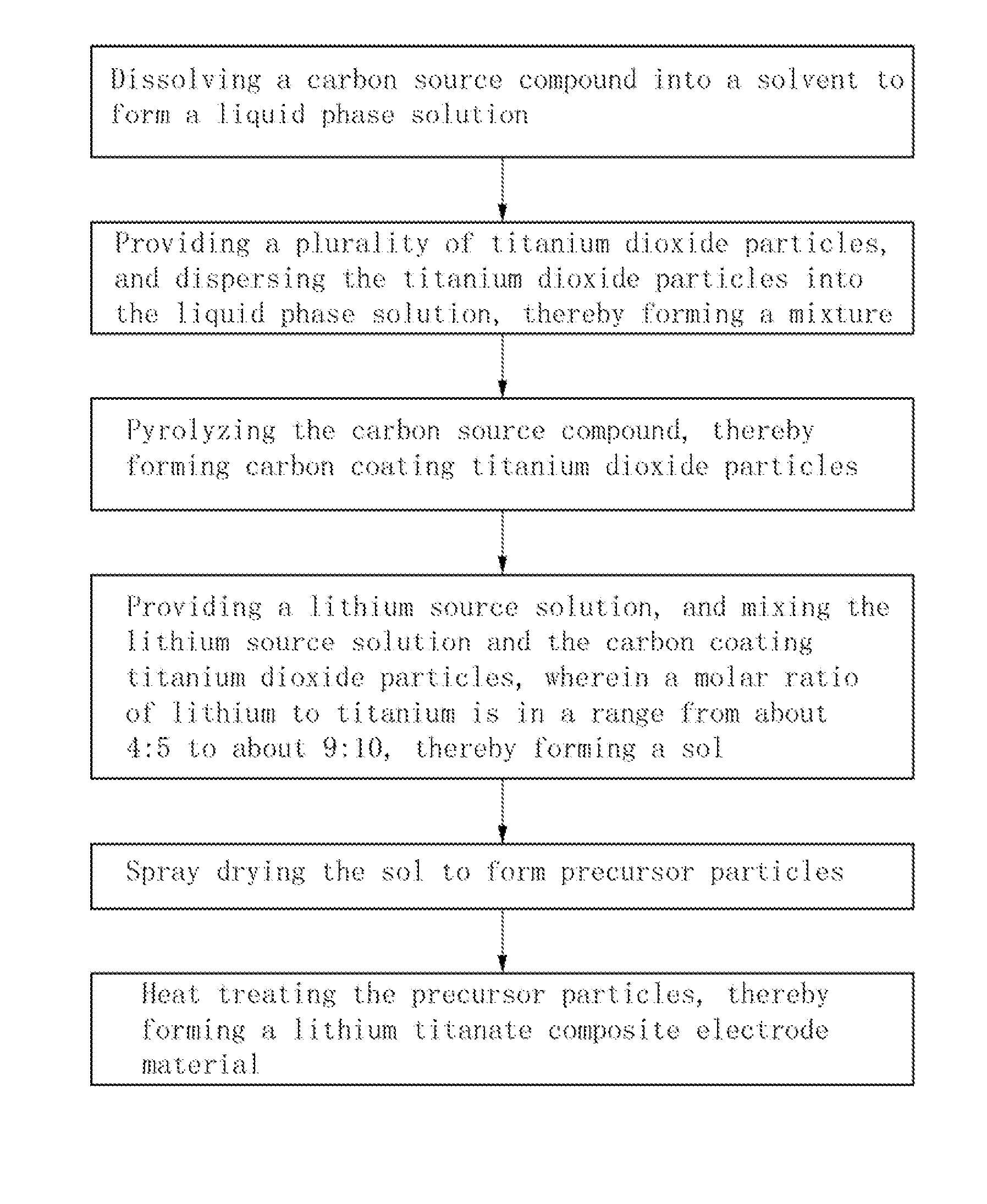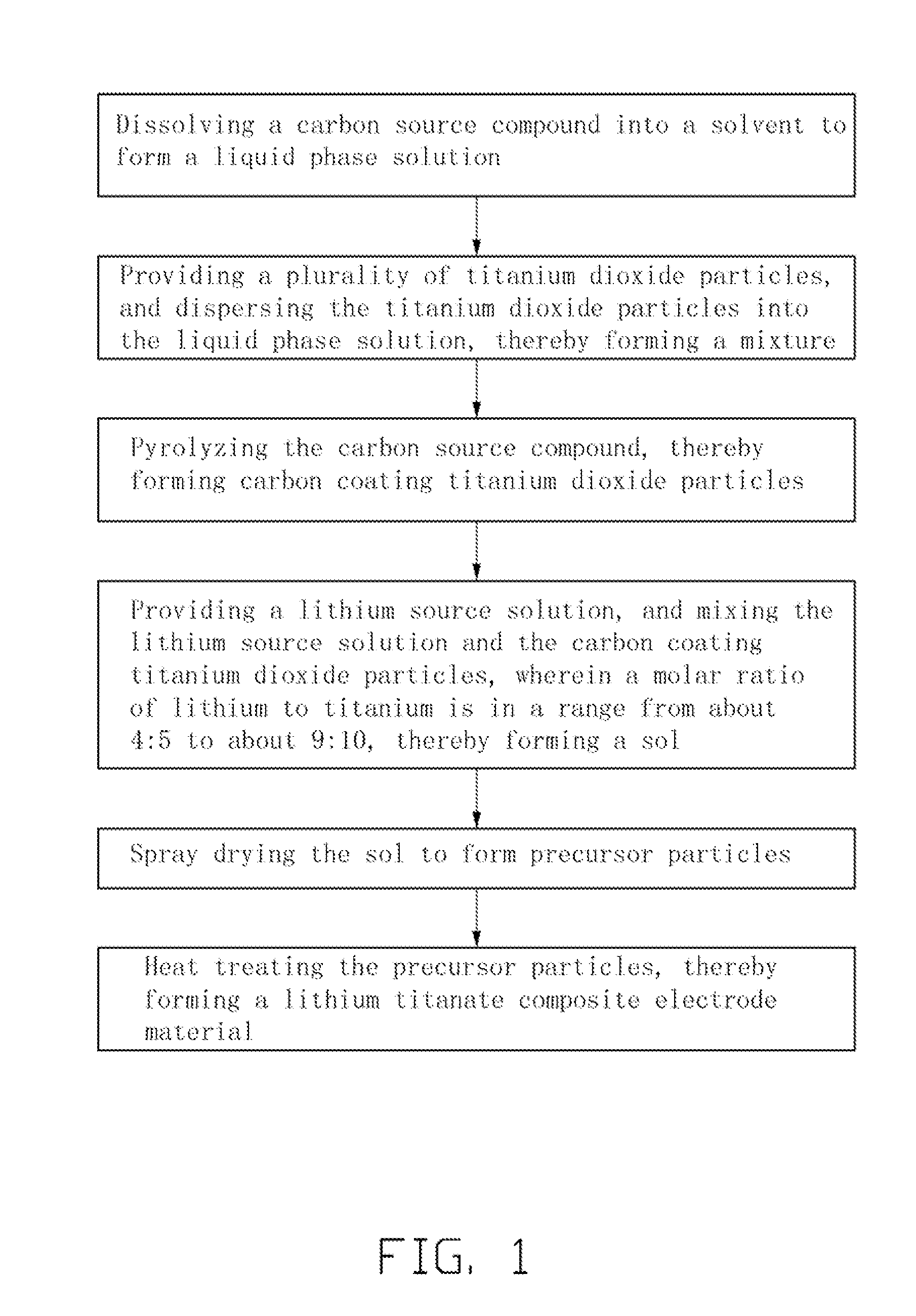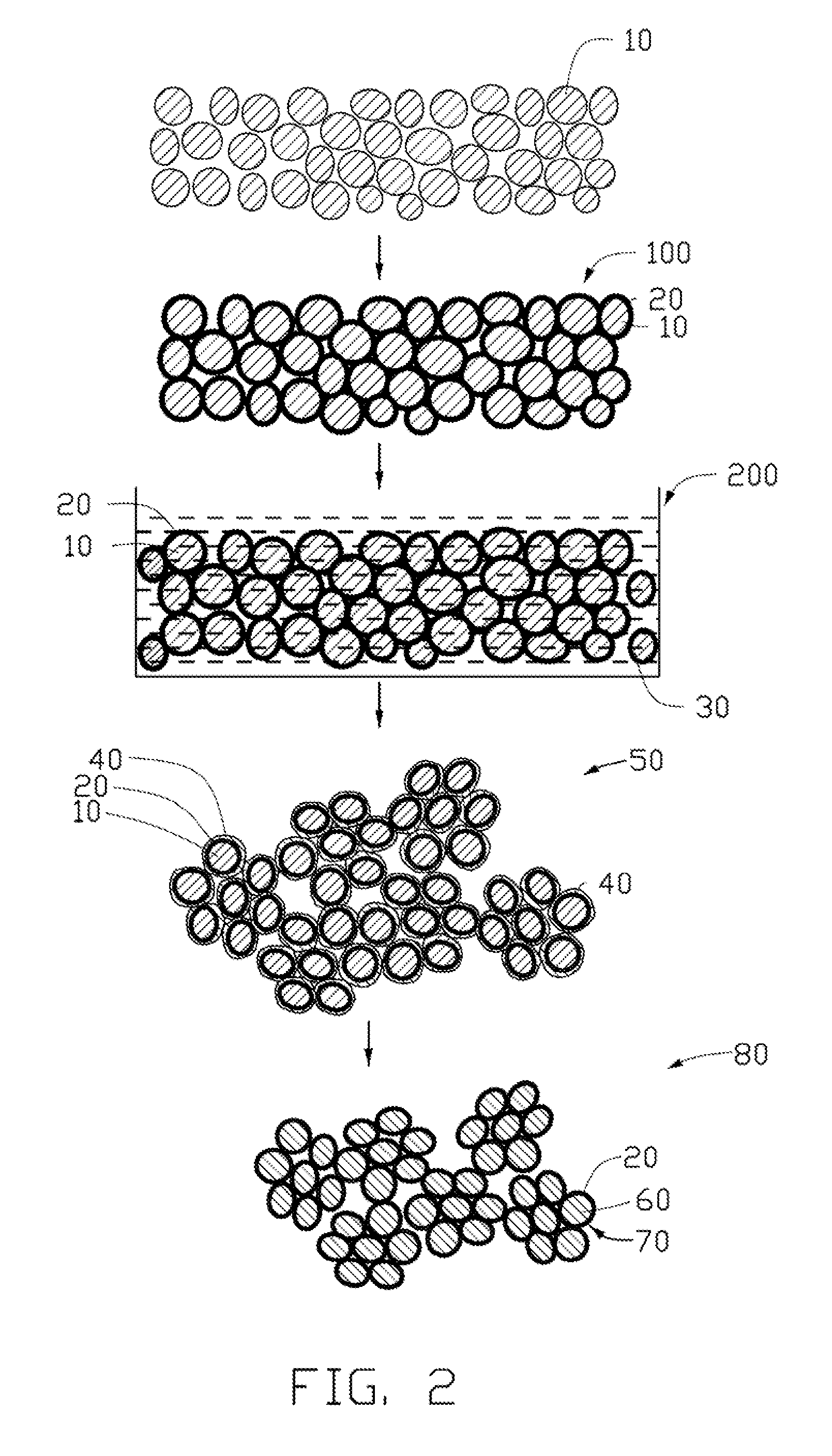Method for making lithium-ion battery electrode material
a lithium-ion battery and composite electrode technology, applied in the direction of alkali titanates, cell components, coatings, etc., can solve the problems of increasing the life of batteries, reducing the specific capacity of electrodes, and lithium titanate has lower conductivity, charge and discharge rate, and tap density
- Summary
- Abstract
- Description
- Claims
- Application Information
AI Technical Summary
Benefits of technology
Problems solved by technology
Method used
Image
Examples
Embodiment Construction
[0015]The disclosure is illustrated by way of example and not by way of limitation in the figures of the accompanying drawings in which like references indicate similar elements. It should be noted that references to “an” or “one” embodiment in this disclosure are not necessarily to the same embodiment, and such references mean at least one.
[0016]Referring to FIGS. 1, 2, and 3, one embodiment of a method for making a lithium titanate composite electrode material includes the steps of:
[0017]S1, dissolving a carbon source compound into a solvent to form a liquid phase solution;
[0018]S2, providing a plurality of titanium dioxide particles 10, and dispersing the titanium dioxide particles 10 into the liquid phase solution, thereby forming a mixture;
[0019]S3, pyrolyzing the carbon source compound, thereby forming carbon coating titanium dioxide particles 100;
[0020]S4, providing a lithium source solution 30, and mixing the lithium source solution30 and the carbon coating titanium dioxide ...
PUM
| Property | Measurement | Unit |
|---|---|---|
| thickness | aaaaa | aaaaa |
| diameter | aaaaa | aaaaa |
| temperature | aaaaa | aaaaa |
Abstract
Description
Claims
Application Information
 Login to View More
Login to View More - R&D
- Intellectual Property
- Life Sciences
- Materials
- Tech Scout
- Unparalleled Data Quality
- Higher Quality Content
- 60% Fewer Hallucinations
Browse by: Latest US Patents, China's latest patents, Technical Efficacy Thesaurus, Application Domain, Technology Topic, Popular Technical Reports.
© 2025 PatSnap. All rights reserved.Legal|Privacy policy|Modern Slavery Act Transparency Statement|Sitemap|About US| Contact US: help@patsnap.com



